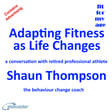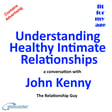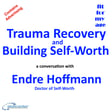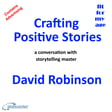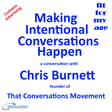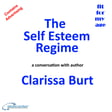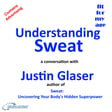
5 Steps for Stress Management a converstion with Iris Mckee
Iris McKee is a nurse who was fascinated by the way in which community psychiatric nurses dealt with the stresses of their work. So, she researched their stress management techniques as part of her master’s degree.
Now Iris has launched yourevalued.co.uk a company that aims to help employers demonstrate to their employees that they are valued.
In this episode, of Fit For My Age Iris explains to Michael Millward the YoureValued five step approach to managing stress and improving employee well-being.
Proactive Positive Ageing.
It is always a good idea to know the risks early so that you can take appropriate actions to maintain good health, that is why we recommend The Annual Health Test from York Test.
York Test provides an Annual Health Test. An experienced phlebotomist will complete a full blood draw at your home or workplace. Hospital standard tests covering 39 different health markers are carried out in a UKAS-accredited and CQC-compliant laboratory.
A Personal Wellness Hub gives access your easy-to-understand results and guidance to help you make effective lifestyle changes anytime via your secure, personal Wellness Hub account.
Access York Test https://www.yorktest.com/and use this discount code AGE25.
Fit For My Age is made on Zencastr.
Zencastr is the all-in-one podcasting platform, on which you can create your podcast in one place and then distribute it to the major platforms like Spotify, Apple, and Google. It really does make creating content so easy.
If you would like to try podcasting using Zencastr visit zencastr.com/pricing and use our offer code ABECEDER.
Find out more about both Michael Millward and Iris McKee at Abeceder.co.uk
Visiting London
Iris studied in London. If you would like to visit London the best place to make your travel arrangements is The Ultimate Travel Club, because that is where you can access trade prices for flights, hotels and holidays. Use my offer code ABEC79 to receive a discount on your membership fee.
Matchmaker.fm
Thank you to the team at Matchmaker.fm the introduction to Iris.
If you are a podcaster looking for interesting guests or if like Iris, you have something very interesting to say Matchmaker.fm is where matches of great hosts and great guests are made. Use our offer code MILW10 for a discount on membership.
Three the network
If you are listening to The Independent Minds on your smart phone, you may like to know that Three has the UK’s Fastest 5G Network with Unlimited Data, so listening on Three means you can wave goodbye to buffering.
Visit Three for information about business and personal telecom solutions from Three, and the special offers available when you quote my referral code WPFNUQHU.
Being a Guest
If you would like to be a guest on Fit For My Age, please contact using the link at Abeceder.co.uk.
We recommend that potential guests take one of the podcasting guest training programmes available from Work Place Learning Centre.
We appreciate every like, download, and subscriber.
Thank you for listening.
